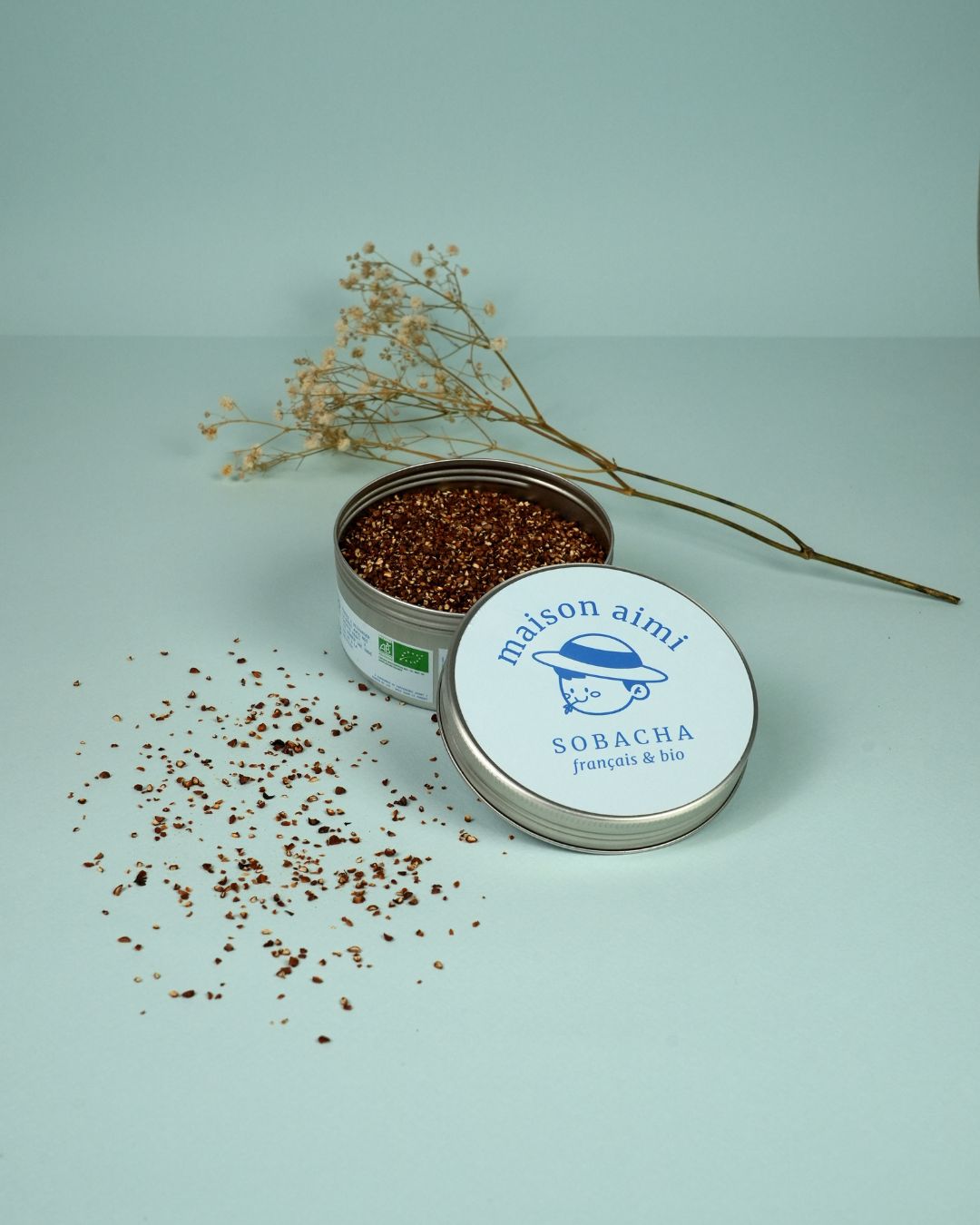Tea and pregnancy: what teas to drink during pregnancy?

As a future mother and tea addict, you may be wondering about drinking tea during pregnancy and breastfeeding. While it is generally allowed to drink tea while pregnant, it is necessary to do so in moderation – just like coffee, and for the same reason: tea contains theine, the same exciting molecule as coffee. If you are a big tea drinker, you may need to slow down the doses and find alternatives to tea. In this article, we answer all the questions you have about pregnancy and tea!
Summary
I'm pregnant, can I drink tea?
4 reasons to cut down on tea during pregnancy
Can I breastfeed and drink tea?
3 Pregnancy-Friendly Tea Alternatives
I'm pregnant, can I drink tea?
Generally speaking, a pregnant woman can continue to drink tea throughout her pregnancy, provided that her consumption remains limited, around 3 cups maximum per day and preferably away from meals.
💡 The figure of three cups per day max should be weighted according to your caffeine consumption outside of tea, your feelings and the opinion of the health professional who is monitoring your pregnancy. Do not hesitate to ask for medical advice!
4 Reasons to Cut Down on Tea During Pregnancy
It is important to be careful about your tea consumption during pregnancy for four reasons: limit your consumption of theine, avoid the inhibitory effect of tea tannins on the assimilation of iron and folic acid and limit the absorption of pesticides and heavy metals .
Theine
Limiting tea consumption during pregnancy is first important to reduce daily intake of theine . Theine is in fact the same molecule as caffeine (only its name changes depending on the plant from which it is extracted!). However, it is recommended by the National Agency for Food Safety (ANSES) not to exceed the dose of 200 mg of caffeine per day during pregnancy.
According to studies, caffeine in too high doses (more than 300 mg/day) could indeed have negative effects on pregnancy , both on you and on your fetus. Thus, caffeine consumed in high doses would increase the risks of high blood pressure in pregnant women, but also those of premature birth and delay in the developing brain of the fetus.
Tannins and iron absorption
Tea is naturally rich in tannins (you know, those are the molecules that stain teacups). While tannins are beneficial in many ways (they are responsible for the flavors of tea as well as some of its beneficial properties), they have an inhibitory effect on iron absorption. In other words, drinking tea rich in tannins prevents the absorption of iron absorbed by your body. However, iron is an essential trace element for pregnant women and your iron needs are increased during pregnancy to support your health and the growth of your developing baby.
This is why it is important to consume tea away from meals so that the inhibitory effect on iron assimilation is more limited.
Tannins and the absorption of folic acid (or vitamin B9)**
Studies have shown that tea, and more specifically the catechins it contains, can reduce the bioavailability (and therefore the assimilation) of folic acid (also known as vitamin folate or vitamin B9).
Folic acid is essential during pregnancy because it helps form the embryo's nervous system. This helps reduce the risk of birth defects , such as neural tube defects (NTDs).
Pesticides and heavy metals
Last contraindication to excessive tea consumption during pregnancy: the content of pesticides and heavy metals that some teas may be suitable for . In some tea plantations, pesticide treatments are numerous and these, sprayed, are preserved on the tea leaves. As for the soils where these plantations are installed, they can be loaded with heavy metals and the feet of the tea plants can perceive them and their leaves can thus contain them. Although these elements are present in very small quantities, they can be assimilated by the fetus during its development with risks of malformation.
This is why we recommend that you turn to organic teas and/or tea houses that carefully select their partners. This will help limit the ingestion of these elements that are undesirable for your health and that of your future baby.
Can I breastfeed while drinking tea?
The maximum of three cups of tea per day should also be maintained during the breastfeeding period.
In fact, a large scientific study published in 2006 showed that 1% of the theine (caffeine) consumed by a breastfeeding person ended up in her milk and was absorbed by the newborn.
However, the elimination of theine by the baby's very young body, particularly in newborns and premature babies, is very slow. Thus, small quantities of theine can accumulate in the baby's body and generate various consequences such as night waking, agitation or nervousness.
In this context and to avoid these undesirable effects, the recommendation is therefore to limit the consumption of caffeine, from all sources (tea, coffee, soda), to 300 mg/day in breastfeeding people.
What is the best tea to drink during pregnancy and breastfeeding?
There is no tea that is better than another to consume during pregnancy and breastfeeding. Because you are limited to 3 cups per day maximum, we recommend above all that you select a tea that you like to please yourself.
How to consume tea during pregnancy and breastfeeding?
Here are some tips for consuming and choosing your tea during pregnancy and breastfeeding:
- Choose an organic tea (or one from a tea house that is careful and attentive in its choice of suppliers) in order to limit the content of pesticides and heavy metals;
- Adopt a few gestures to reduce the theine content: increase the infusion time (more than 3 minutes), infuse twice (by letting the tea infuse for 30 seconds to 1 minute in water at 90°C then getting rid of the liquid, we eliminate about 75% of the caffeine) or use the tea several times (from the second cup, there is almost no more caffeine). Test these different methods: if they do not alter your taste experience too much, do not hesitate to put them in place!
Pregnancy-friendly tea alternatives
Do you like love tea and are looking for drinks with a similar taste and appearance to consume during this period, alternating with tea or replacing tea completely? Here are our 3 suggestions!
Barley tea or mugicha
Appreciated in Asia (it is called Mugicha in Japan and Boricha in South Korea) and in Italy (it is consumed like coffee, under the name caffè d'orzo), barley tea is only tea in name. Derived from an infusion of roasted barley cereals, it contains neither theine nor tannins, which makes it particularly interesting for pregnant and breastfeeding women. Rich in minerals and GABA, an anti-anxiety molecule, it also has the particularity of being relaxing. Its roasted taste is marked, on the border between black tea and long coffee, making it interesting for people who do not like the light taste of infusions and herbal teas.
At Maison Aimi, it's our favorite drink, the one that motivated Charlotte, our founder, to create the brand when she discovered it in Japan. She decided to create 100% French mugicha from organic French barley ! Find it on our shop!

Buckwheat tea or sobacha
Buckwheat tea is, like barley tea, a cereal tea without theine or tannins that is perfectly suited to pregnant and breastfeeding women. It is quite well known under its Japanese name “sobacha”, but it is also very popular among our Italian neighbors. Buckwheat tea is often considered a healthy drink because of its antioxidant, B vitamin, mineral and fiber content. Like barley tea, it has a roasted taste to discover!
At Maison Aimi, you can find 100% organic and French sobacha .

Red tea or rooibos
Despite its common name of “red tea”, due to its scarlet color, rooibos is not really tea. The leaves of this plant, native to South Africa, are consumed as an infusion and contain neither theine nor tannins. Its taste, strong and round at the same time, is particularly appreciated, especially by tea consumers who do not appreciate infusions and herbal teas, because they are “too weak in taste”.
In France, you will easily find it in the various organic grocery stores in France. However, it is never available in made in France, the plant does not grow on our territory.
Whether you are pregnant or currently breastfeeding, we strongly recommend that you limit your tea consumption. This is largely due to the theine it contains, but not only! If you are a big tea fan, do not hesitate to adopt a few tips to limit the theine contained in your tea and to discover alternatives, without theine or tannins, such as barley tea .
You may also like:


